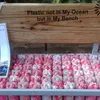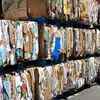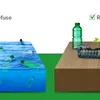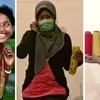World Environment Day: This campaign shows recycling of plastics is the way forward for a green future
Started on World Environment Day a year ago, the Bottles for Change campaign aims to create awareness about plastic segregation and recycling in schools, colleges, housing societies, corporate offices, and other places.

India generates a high volume of plastic waste — 25,940 tonnes each day— nearly half of which is single-use plastic.
Be the change you want to see. A cliche, if you ever saw one, but is has become the driving mantra for many schools, colleges, housing complexes, and corporate houses across the country that are working to create a cleaner, greener, and a sustainable environment by disposing of and recycling plastic responsibly.
India generates a high volume of plastic waste — 25,940 tonnes each day— nearly half of which is single-use plastic, which cannot be decomposed and ends up in the landfill. Hence it becomes imperative for citizens to not only reduce plastic consumption, but also segregate and recycle waste.
With an aim to educate people about the importance of segregating and recycling plastic, Anjana Ghosh, Director and Marketing Head for Bisleri International, started the ‘Bottles for Change’ campaign on World Environment Day in 2018. The campaign also partnered with three Mumbai-based non-profits: Parisar Bhagini Vikas Sangh (PBVS), and Sampurna Earth.
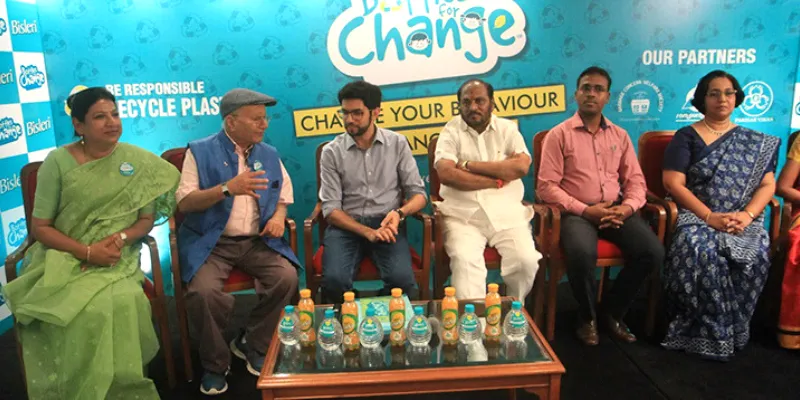
The initiative was launched last year on World Environment Day, June 5, 2018.
Over the past one year, the campaign has reached over 15 lakh citizens, 600 housing societies, 150 corporates, 400 hotels and restaurants, 200 schools, and 3,00,000 students across Maharashtra. Together, they have recycled over 4,800 tonnes of plastic.
Anjana, who believes proper disposal of used plastic can actually be positive for the environment, says:
“In reality, plastic is not a problem. The problem is irresponsible human behaviour in disposing of plastic. If disposed of sensibly, it can actually do well to the environment. If recycled, plastic can be made to form recycled polyester, which in turn is used to produce a number of things like shoes, T-shirts, bags, etc, thereby causing less strain on natural resources.”
Creating change agents
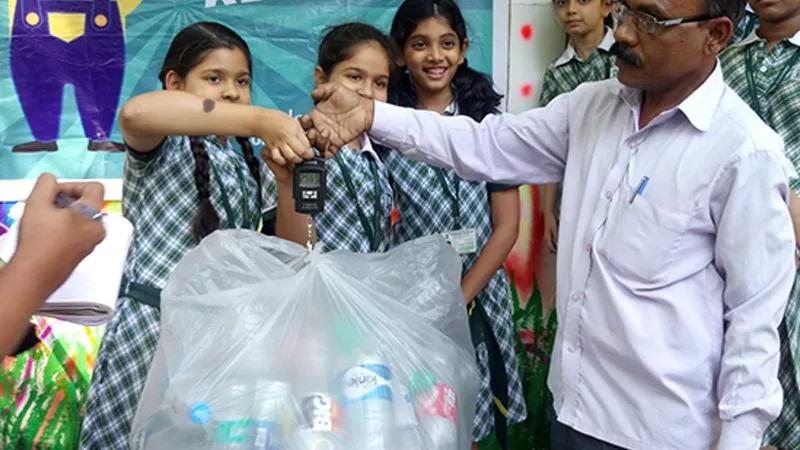
Through a sustained campaign, “empty, clean, and crushed plastic waste” is collected from students.
The driving motive behind this campaign has been the recycling of plastics. This was possible by first educating and creating awareness about the benefits of recycling and segregation of waste. Hence, the team worked with multiple schools, colleges, and educational institutions in Mumbai and conducted many workshops, seminars, activities, and guest lectures, which taught the students about the importance waste management.
Through a sustained campaign, these institutions are motivated to collect “empty, clean, and crushed used plastic” from students. Later, these items are collected by the NGOs to ensure the waste collected is disposed of efficiently and is sold to recyclers. Through this process, they aim to create a cycle of change driven by the youth.

Catching 'em young, this campaign has instilled in students a sense of responsibility to do away with plastic bottles or clear them even outside their school hours.
For instance, earlier this year, Riya Rajesh Chourasiya, a Class VII student from Xavier’s High School in Borivali, Mumbai, saw a wedding function underway in front of her school as she was boarding her school bus. She noticed plenty of bottles and plastic being thrown on the ground. Instinctively, she left her bus and went into the function hall with a bag and started collecting used plastic bottles. She even asked other people to not throw it elsewhere. Observing this, a few more students from her school joined her.
She says her passion for the environment gained momentum through the ‘Bottles for Change’ campaign, which was held in her school. The school motivated students to collect and recycle plastic from their own classes and homes, and rewarded them.
A similar approach was taken to residential communities and housing complexes.
Recycling is the key
“Plastic is the world’s packaging choice for many foods and beverages, because it’s hygienic, strong, light-weighted, safe, and often recyclable. So, as a responsible citizen, don’t chuck those empty plastic bottles anywhere and everywhere and don’t allow them to pile up in your kitchen for days. Instead, dispose of the bottles in the correct manner and help in recycling plastic responsibly,” Anjana explains.
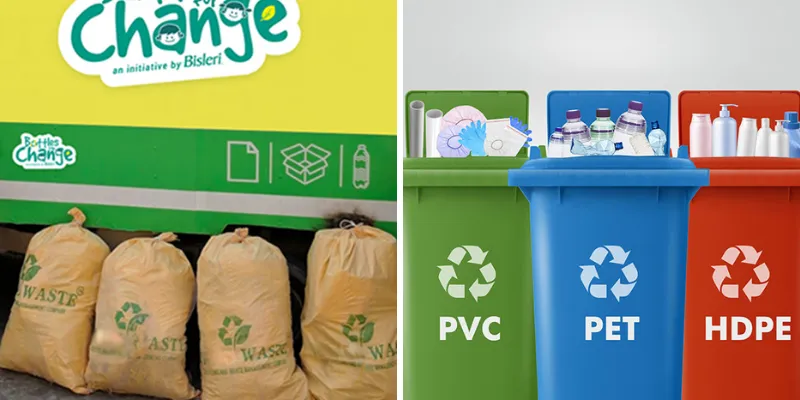
Segregation of waste is of upmost importance.
Due to its low biodegradability nature, a thorough understanding of the recycling process of plastic has become imperative. Some of the commonly used plastics that can be recycled by means of reprocessing include PET, HDPE, PVC, and LDPE.
With the belief that plastics have an afterlife, the Bottles for Change campaign advocates recycling of plastics by following these five steps:
- Collection: There are various ways in which plastic reaches the waste stream for recycling. Plastic items are separated from municipal solid waste by rag pickers and sold to kabadiwallahs. Waste pickers also reach out to various channels like schools, colleges, communities, airports, railway stations, and hotels, to collect waste. Here, it is essential that plastic is segregated from other waste so that it can be recycled.
- Sorting: Very often, the kabadiwallahs get mixed-plastic waste, and they sort the waste on the basis of different kinds of plastic. This is done mostly by visual inspection, by subjecting the plastic item to a series of improvised tests like touch, bending, snapping, and applying solvents. The different plastics are then segregated and sold to different traders.
- Shredding: On arriving at the recycling unit, truckloads of plastic are opened and sorted, starting the cleaning process all over again. The bottles are subjected to various stages of cleaning processes. All PVC labels, caps, and metal components, if any, are removed. Different kinds of plastic are segregated as this process helps in ensuring different plastics are not put together or mixed up in the final product. Once the segregation is done, they go through the shredder. The shredder cuts the plastic into tiny pieces.
- Cleaning and flaking: The shredder converts the plastic into flakes. Once that is done, the flakes are then subjected to further washing, drying, and are ready to be shipped to the manufacturing units.
- Extruding: This involves melting the shredded plastic so that it can be extruded into pellets, which are then used to make different types of products.
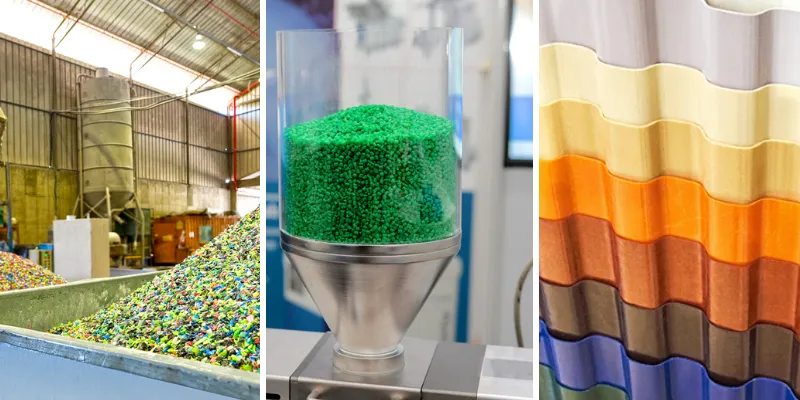
The shredded plastic is processed and can be converted to multiple products.
Benefit for all
Many non-profit organisations form the pillars of this campaign. By engaging and enrolling partners for the programme, the NGOs also help in spreading awareness about the advantages of disposing of plastic correctly and recycling it for better use.
They help in the collection of plastic from various partner sources like housing societies, schools, colleges, corporates, and restaurants. They also provide employment to waste-pickers and the underprivileged, as waste pickers are allotted scheduled days to collect and dispose of the waste responsibly. Further, the money earned from cleaned and recycled plastic is used by the NGOs for their welfare programmes.
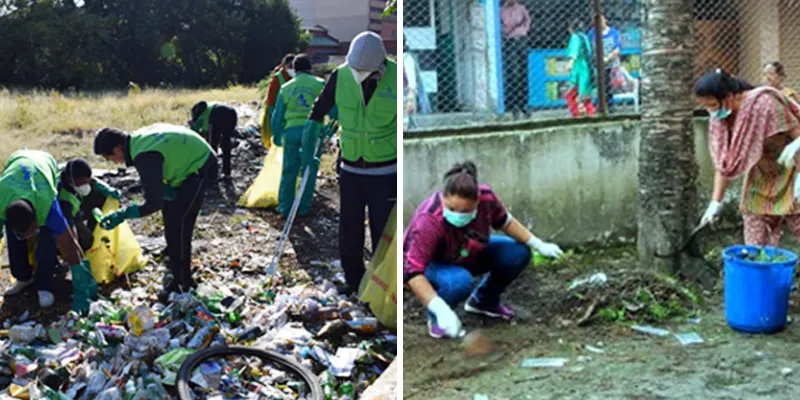
Volunteers work with the rag pickers to segregate the waste on-site.
For instance, Parisar Bhagni Vikas Sangh (PBVS) and Sampurna Earth work with over 500 ragpickers in Mumbai to create cloth fabrics, handbags, window blinds, and other useful products with the collected plastic.
Debartha Banerjee, Co-founder and Director of Sampurna Earth, says:
“Targeting ‘out of sight out of mind’ and ‘not in my backyard’ approach is one of our key strategies. That is the reason all our solutions are decentralised and the waste generator has to take extra responsibility of waste segregation to keep their waste management system active. Monetarily incentivising people by creating value from waste is also what helps us penetrate.”
Sampurna Earth provides context-based waste management solutions that are environment-friendly and actively engage waste pickers. It works along with municipal corporations, corporates, educational campuses, and residential complexes to manage both biodegradable waste (handled through compost units or biogas plants) and non-biodegradable waste (channelised to recyclers). It also trains waste pickers and employs them to manage these systems.
Green future
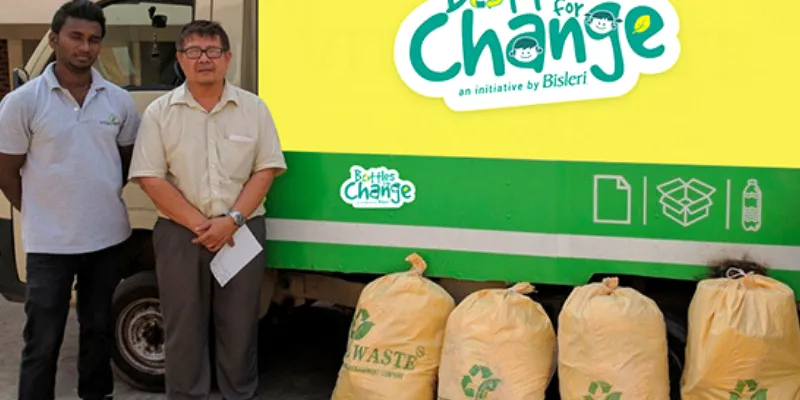
Many NGOs team up and help in the collection of plastic from various partner sources like housing societies, schools, colleges, corporates, and restaurants.
Since its inception, the ‘Bottles for Change’ programme has conducted over 200 plastic recycling awareness and collection drives and workshops.
At present, 14 wards of Mumbai and parts of Navi Mumbai and Thane are covered.
“We need to actively help to bring about the much-needed change in mindset around plastic in general. We are currently focusing on Andheri K East and West ward as we are trying to make it a model ward for the initiative,” Anjana explains.
In Andheri, they have started to segregate plastic from every household, and have created multiple awareness campaigns and workshops aimed to inculcate the habit of treating plastic as an asset and not waste. The residents have been made aware about the importance of segregation, recycling, and collection process through the plastic agents.
The campaign is set to expand to two more cities in the next six months.


